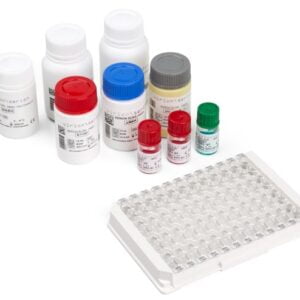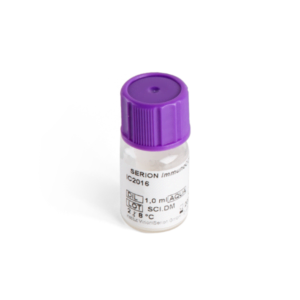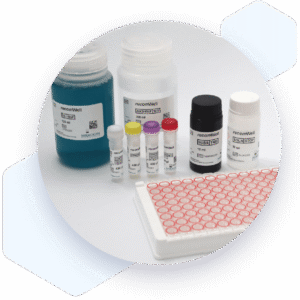| Weight | 1 lbs |
|---|---|
| Dimensions | 9 × 5 × 2 in |
| target | Respiratory Syncytial Virus reactive IgG |
| species reactivity | Respiratory Syncytial Virus |
| applications | ELISA |
| assay type | Indirect & quantitative |
| available sizes | 96 tests |
Respiratory Syncytial Virus IgG ELISA Kit ESR113G
$364.00
Summary
- Virion/Serion Diagnostic Kit for research use (RUO)
- Respiratory Syncytial Virus (RSV) IgG ELISA Kit
- Suitable for IgG detection
- Ready-to-use
- 96 tests
Respiratory Syncytial Virus IgG ELISA Kit ESR113G
| kit | ||||||||||||||||||
|---|---|---|---|---|---|---|---|---|---|---|---|---|---|---|---|---|---|---|
| Assay type Indirect ELISA | ||||||||||||||||||
| Research area Infectious Disease | ||||||||||||||||||
| Sample type Serum, plasma, whole blood | ||||||||||||||||||
Components
| ||||||||||||||||||
| Storage Store at 2-8°C. | ||||||||||||||||||
| Associated products Respiratory Syncytial Virus Antigen (BA113VS) Respiratory Syncytial Virus IgA Control Serum (BC113A) Respiratory Syncytial Virus IgG Control Serum (BC113G) Respiratory Syncytial Virus IgA ELISA Kit (ESR113A) Respiratory Syncytial Virus IgG ELISA Kit (ESR113G) Respiratory Syncytial Virus IgM ELISA Kit (ESR113M) |
| target relevance |
|---|
| Organism Respiratory Syncytial Virus |
| Protein names Respiratory Syncytial Virus (RSV) |
| Structure and strains Respiratory syncytial virus (RSV), also called human respiratory syncytial virus (hRSV) and human orthopneumovirus, is a contagious virus that causes infections of the respiratory tract. It is a negative-sense, single-stranded RNA virus. Its name is derived from the large cells known as syncytia that form when infected cells fuse. |
| Detection and diagnosis Antigen and antibody detection methods are important in the diagnosis of RSV infections. In serology, ELISA tests, which allow for the differentiation of IgA, IgG and IgM immunoglobulin classes, are of increasing importance. |
Data
Publications
| pmid | title | authors | citation |
|---|---|---|---|
| We haven't added any publications to our database yet. | |||
Protocols
| relevant to this product |
|---|
| ESR113G protocol |
Documents
| # | ||
|---|---|---|
| EQ0009 | Safety Data Sheet | QC certificate |
Only logged in customers who have purchased this product may leave a review.




Reviews
There are no reviews yet.